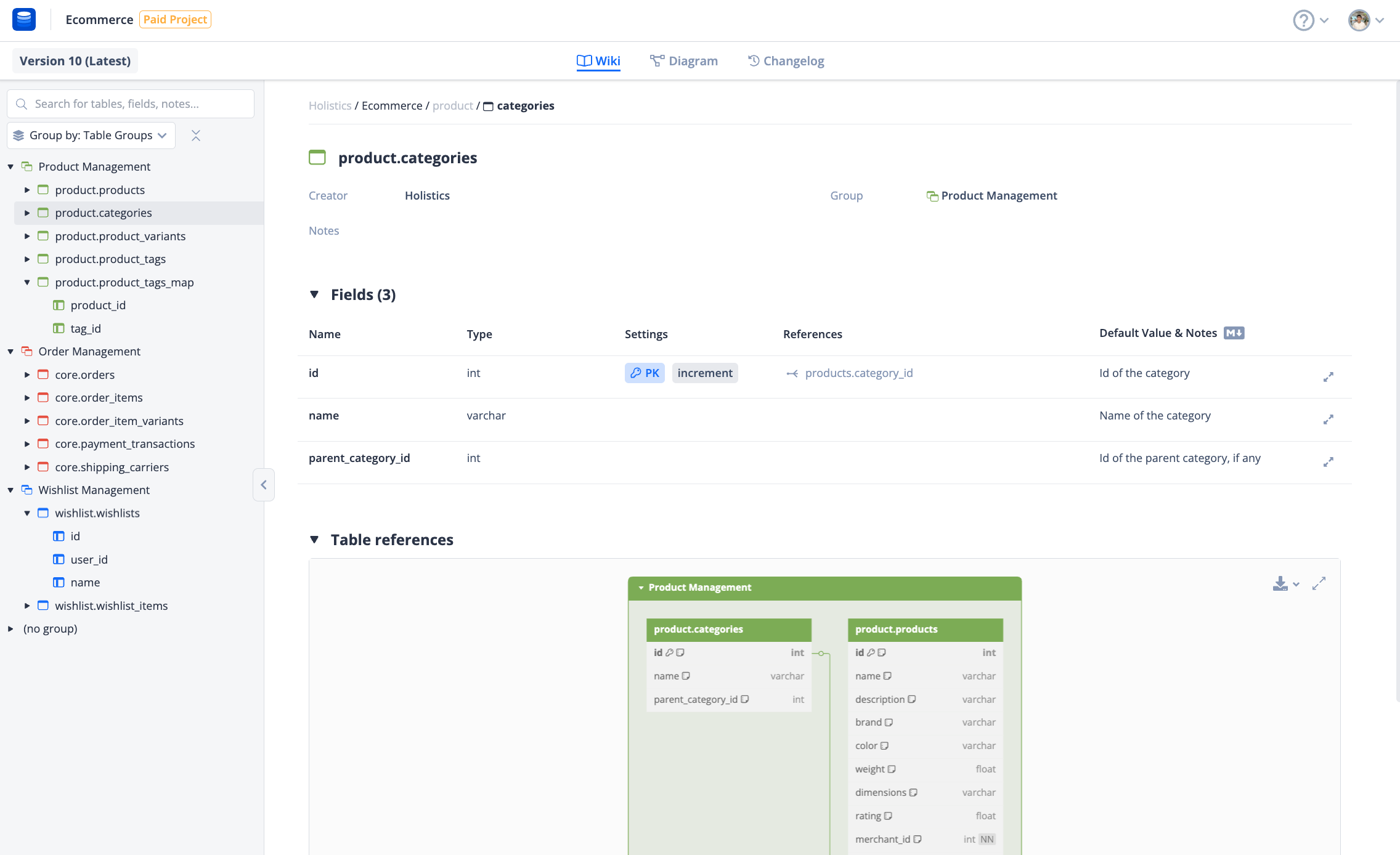Introduction to Data Catalog Tools
Data catalog tools help organizations document, manage, and govern their data, ensuring teams can easily discover and understand data assets. While Dataedo is a widely used tool for data cataloging and lineage, many teams—especially startups and dev-focused organizations—seek cost-effective, lightweight alternatives.
This comparison spotlights three leading alternatives: DBDocs, Alation, and Atlan, highlighting DBDocs’ strengths for developers and budget-conscious teams.
Dataedo Overview
Dataedo is a comprehensive data governance platform offering features like:
- Metadata documentation
- Data lineage and profiling
- Business glossary and data quality rules
- 50+ connectors for databases including SQL Server, PostgreSQL, and Snowflake

However, its pricing starts at $999 for the Creator license and scales up to $12,500, which might be a barrier for smaller teams.
1. DBDocs – Best for Developers and Startups
DBDocs is a free, cloud-based documentation tool using DBML (Database Markup Language). It allows teams to visually document databases and integrate with version control workflows.

Key Strengths:
- Free forever – No cost barrier
- Developer-centric – Uses DBML for code-first schema definitions
- Supports major databases – MySQL, SQL Server, PostgreSQL, Snowflake, BigQuery
- Version control-friendly – Syncs with Git/CI workflows
- Visual docs – Easily shareable diagrams
Ideal for teams that value simplicity, developer experience, and seamless setup.
2. Alation – Enterprise-Grade Data Intelligence
Alation focuses on enabling data governance, discovery, and collaboration. It supports hundreds of data sources and features natural language search, data stewardship tools, and deep integration with BI tools like Tableau.

Pros:
- Robust governance features
- Collaboration tools for data teams
- Advanced search and metadata tagging
Cons:
- Enterprise pricing – Starting in the tens of thousands per year
- Less tailored to developers
3. Atlan – Modern Metadata Platform with Automation
Atlan is a third-gen data catalog that prioritizes metadata automation and collaboration. It integrates with dbt, Snowflake, and modern data stacks, making it great for active metadata management.

Pros:
- Active metadata platform
- Integrations with modern data tools (dbt, Snowflake)
- Automation via metadata bots
Cons:
- Pricing not public but aimed at enterprise budgets
- Less intuitive for code-first teams
Detailed Comparison Table
| Tool | Pricing | Supported Databases | Code-First | Key Features | Best For |
|---|---|---|---|---|---|
| Dataedo | $999 – $12,500 | 50+ including SQL Server, Snowflake | No | Governance, Lineage, Glossary, Profiling | Mid-sized organizations |
| DBDocs | Free | MySQL, SQL Server, PostgreSQL, BigQuery | Yes | Visual docs, Git sync, DBML-based workflow | Developers, small teams |
| Alation | Tens of thousands/yr | Enterprise sources, Tableau, Snowflake | No | Search, Governance, Collaboration | Enterprises, data stewards |
| Atlan | Thousands+/yr | Modern stacks, dbt, Snowflake | No | Automation, Metadata Bots, Workflow | Modern data-driven teams |
Conclusion: DBDocs Stands Out
If you’re a startup, developer team, or organization looking for a cost-effective, intuitive solution for data documentation, DBDocs is the clear winner. While Dataedo, Alation, and Atlan offer deep governance features, their cost and complexity may be overkill for leaner teams.
DBDocs offers:
- Zero-cost access
- Seamless Git-based documentation
- Visual clarity for schema sharing
- Developer-first simplicity
For small teams or developer-focused environments, DBDocs offers the fastest path to professional-grade documentation without breaking the bank.
Create Beautiful Database Documentation in Minutes
Generate web-based documentation for your database with our free, simple tool. Define your schema with DBML and create professional documentation in just a few steps.
Supports:
